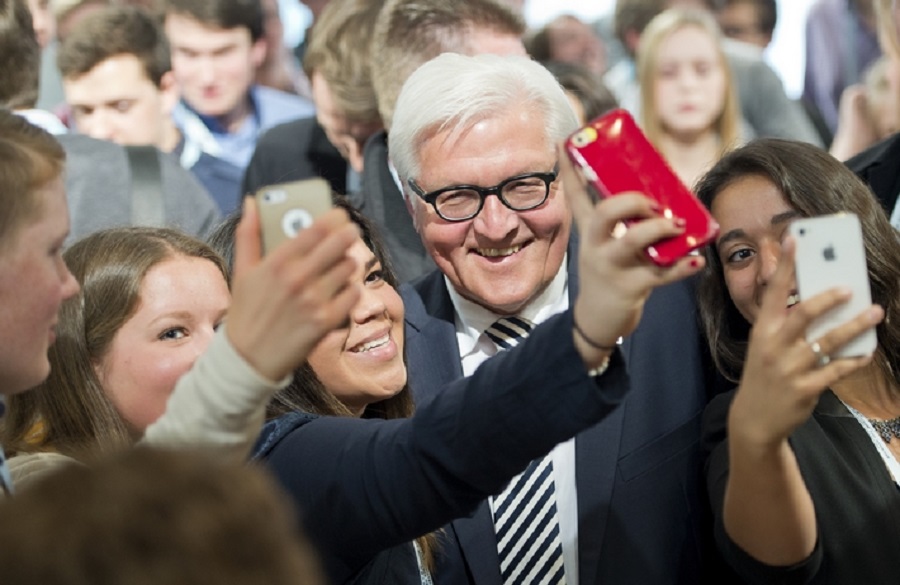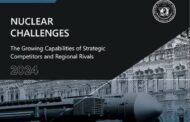Minister zahraničných vecí NSR Frank-Walter Steinmeier poskytol rozhovor nemeckým novinám Rheinische Post. V rozhovore, ktorý bol publikovaný 2. januára 2017, sa venuje najmä problematike vývoja v Sýrii, na Ukrajine a nemeckej zahraničnej politike
* * * * *
Syria: “For true prospects for peace, more will be required”
Foreign Minister Frank-Walter Steinmeier talks to the newspaper Rheinische Post
____________________________________________________________________________________________________________________
Mr Steinmeier, in foreign policy, crises have become the “new normal”. This has been true especially during your term of office. We could use some words of encouragement. Why does 2017 give cause for optimism?
It is true, we do live in turbulent times. Those of us who work in foreign policy have been in permanent crisis mode for at least three years now. Crises do appear to be the new normal. However, we should not forget that there are rays of hope! Look, for example, at Colombia. After a bloody civil war that drove millions of people from their homes, there is now finally a real prospect of peace.
In Iraq, Syria and Libya, ISIS terrorist groups are retreating, thanks to comprehensive efforts by local, regional and international actors. And regarding Syria, I of course hope the ceasefire that has been agreed between the regime in Damascus and the opposition groups will hold, and that efforts will be successful to begin political talks on finding a peaceful solution. After six years of brutal civil war, the people in Syria deserve prospects for a peaceful future of their country.
How do you rate the prospects of the new ceasefire in Syria?
The fact that this ceasefire is more or less holding raises cautious hope for the people in Syria. However, the coming days and weeks will prove whether or not the ceasefire can be successfully sustained. If we have learned one thing from the failed ceasefires of recent months, then it is that, for true prospects for peace, more will be required than merely halting military confrontation. Without meaningful political negotiations that involve all relevant actors, efforts to permanently end the fighting will not succeed.
Staffan de Mistura, the UN Special Envoy for Syria, is working to this end and has our support. What’s important now – and I cannot say this often enough – is that the parties to the conflict must ensure humanitarian access to all besieged areas without delay, and they must stop obstructing the aid workers. This is more urgent than ever now, during the winter! Our humanitarian assistance is ready to be deployed. For people in Aleppo and in other besieged and embattled areas, this is about sheer survival.
You have said that the door to diplomacy must never be closed. Yet it is through non-involvement of the Western Alliance that the killing by Russian and Syrian troops in Aleppo has been able to continue. Is diplomacy in some respects naive?
Diplomacy is many things, but certainly not naive. On the contrary, it would be naive to believe that military means are suitable for solving Syria’s deep-rooted problems. Russia is also aware of this. That was certainly one of the motivating factors for recent negotiations with Turkey on a ceasefire. Regarding your question about Western military intervention, it is easy to make demands if you must not yourself bear the consequences. But the question should first be asked whether recent military intervention, for example in Iraq or Libya, has led to more stability and security.
And has it?
In Iraq, at least, we still have substantial concerns about the country’s future in the wake of a bloody civil war that has lasted many years. In Libya, we are still working to establish something that more or less resembles state order – which completely fell apart after the 2011 intervention. The effects can be felt not only in Libya, but in the entire region. Libyan arms have played a significant role in the conflict in Mali, which we are now painstakingly trying to resolve and where we have deployed German soldiers with a view to supporting this process.
The situation in the Middle East has escalated following a recent UN decision. Is the construction of settlements endangering the two-state solution?
Israel’s right to exist, and the security of its citizens, are fundamental principles of our foreign policy. Most people I speak with in Israel also tell me that, in the long run, the only solution to the Middle East conflict is a two-state solution that must be negotiated by the parties. Continuation of settlement activities in the occupied territories calls into question the fundamental idea of a two-state solution. At the same time, the Palestinian side must of course also do its part and take tangible action against violence and acts of terror. Only if both sides take concrete steps will a political horizon even come back into sight that will open up the possibility of a resumption of negotiations. Unfortunately, the possibility of this happening has not increased recently.
Your review programme has initiated a dialogue on new approaches to foreign policy, that is, creative diplomacy beyond mere “talking” or “shooting”. What benefits has this process brought during recent crises?
When the world changes, diplomacy, too, must change. This idea resonated with me when I returned to the Federal Foreign Office in 2013. So I decided to initiate the review process. We thoroughly scrutinised our work, taking a close look at practically every aspect of the foreign service. And our efforts bore fruit. Overall, we are better prepared today for tackling complex crises than we were three years ago. Thanks to the review process, we have added quite a few tools to our foreign policy toolbox.
This brings very real benefits, such as in Iraq, where we, also with the help of new approaches, are able to ensure that stability returns to areas that have been liberated from ISIS. In the city of Tikrit, for example, 90 percent of the displaced population has been able to return. Only nine months ago, Tikrit was still under ISIS control. This success was achieved also thanks to our help. Through simple and immediate action – such as by repairing electricity grids and water lines – we have helped to create conditions in people’s home towns in which they can live their lives again and join efforts to rebuild.
This year, Germany will host the G20. What message should the meeting send?
We do not want to simply be at the whim of globalisation. We want to actively shape it in beneficial ways. That is the responsibility we are assuming with the G20 Presidency, which rests on three pillars: building resilience, improving sustainability and assuming responsibility. Foreign policy must be more than just crisis management. We must also work to shape the overarching aims of our policies, and we must together with other countries develop strategies for the direction we want this world to take. In this way, we will be showing that we refuse to withdraw into our nation-states, battening down the hatches in defence. Instead, we want to promote international cooperation, dialogue and openness.
Looking back at your tenure as Foreign Minister, what are you particularly proud of?
Unfortunately, the end of a Foreign Minister’s year cannot be compared to that of the Bundesliga, where during the winter break you can look back at last season’s results, draw conclusions and proudly add up your points. In diplomacy, progress is often much less conspicuous. I am certainly very pleased about several developments we have set in motion in recent years. We have concluded an agreement with Iran after many years of tedious negotiations, preventing Tehran from acquiring a nuclear weapon. In Colombia we have also been able to help a little. We have kept the EU together after the earthquake caused by Brexit, making sure it didn’t cause even greater damage.
And then there’s the crisis in Ukraine…
… where we have prevented the war from spreading to all of Ukraine and possibly even further afield. This often required difficult marathon rounds of negotiation with no sleep, setbacks and a great deal of frustration when implementation of the Minsk agreements made only incremental progress. Also, after having held the OSCE Presidency for one year, we can be content that we have re-established this organisation, which is so very important in these times of crisis, as a forum for East-West diplomacy. The fact that we have also succeeded in launching a new disarmament initiative with the support of numerous OSCE countries is an important contrast to troubling current tendencies to build up armament stockpiles in the East and the West. Looking back at nearly eight years as Foreign Minister, I can see that German diplomacy is increasingly sought-after and respected.
In February, you will be standing for election as the new Federal President. These days, must Germany’s head of state be more internationally-minded?
First of all, it will be up to the delegates of the Federal Convention to make their decision on 12 February. It is a true honour to have received this nomination, and I am greatly pleased by the strong support I have been getting from all parts of society. The fact that a Federal President must be internationally-minded is a responsibility of his office and nothing new. Yet the importance of this aspect might increase in times of international crises and conflicts.
* * * * *
Zdroj a ilistračné foto:www.auswaertiges-amt.de







